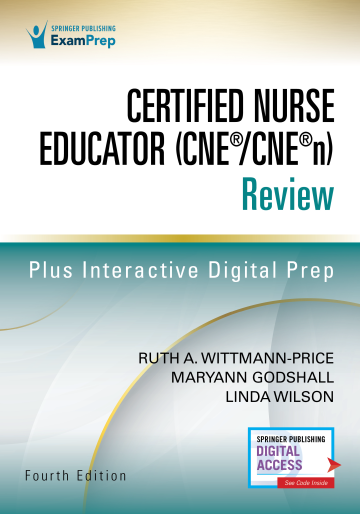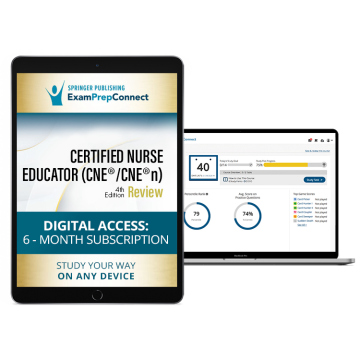
Certified Nurse Educator (CNE®/CNE®n) Review
Note to Readers: Publisher does not guarantee quality or access to any included digital components if book is purchased through a third-party seller.Includes 6 months' free ExamPrepConnect digital access with print purchase! The fourth edition of Certified Nurse Educator (CNE®/CNE®n) Review is designed to help you prepare for the National League for Nursing (NLN) certification exams. Designed for use by both novice and expert nurse educators, this comprehensive study aid with practice Q&A features a systematic approach to exam preparation and incorporates all key competencies and essential knowledge areas. The fourth edition has been updated to closely reflect the latest exam blueprints as well as current practices and an in-depth focus on the nurse educator shortage; competency-based education; technological teaching-learning tools, such as virtual simulation; and multigenerational learners. Case studies, critical-thinking questions, evidence-based teaching pract...




